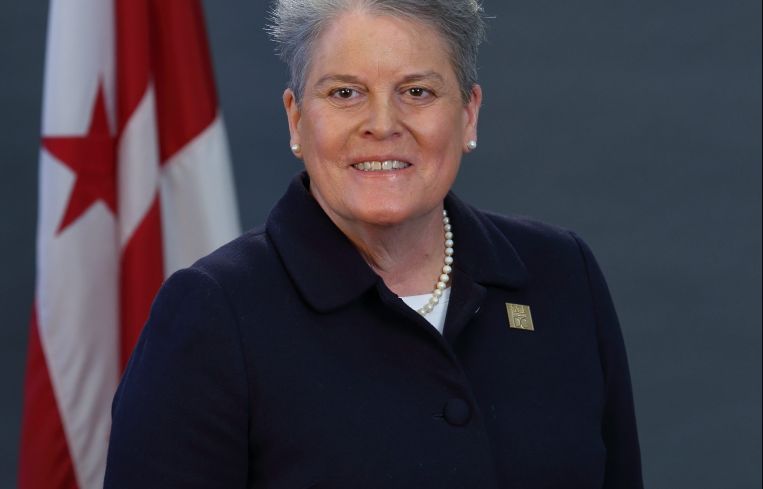DC Housing Chief Polly Donaldson Discusses Her Push for More Affordable Housing
By Matt Grossman September 20, 2019 11:52 am
reprints
Polly Donaldson, the head of Washington, D.C.’s Department of Housing and Community Development since 2015, worked in the non-profit housing sector for almost three decades before taking on her current role — but her best qualification may be that she herself has lived in the District for going on 25 years. A resident of Ward 1, an area of the capital city north of Dupont Circle, Donaldson plays a key role in leading Mayor Muriel Bowser’s efforts to expand affordable housing to more corners of the growing city. Donaldson spoke with Commercial Observer this week about the city’s successes and challenges in expanding its housing supply.
Commercial Observer: How would you describe Washington, D.C.’s affordable housing map as it stands today?
Polly Donaldson: There are historical patterns of affordable housing development in the District. Our mayor, Muriel Bowser, and our Department of Housing and Community Development are working to, in some ways, change those historical patterns to bring the housing conversation citywide. For example, less than 1 percent of the affordable housing in the District is in the Rock Creek West planning area, which is everything west of Rock Creek Park — and that’s not the only example.
In a truly diverse and inclusive city, equity must be a key principle and [policy] needs to be very intentional. We’re here to overcome historic patterns and create incentives that will expand affordable-housing opportunities across the District.
What’s the source of the challenge?
Our population has actually grown by 100,000 over the last 10 years; we’re now over 700,000. We’re larger than Detroit. I would suggest that we need to increase our housing supply as a result. We are now looking at how we do it, including by rezoning. There has already been some significant residential development around the central business district. I think we’re open to any and all tools to innovate.
There’s a local law on the books that strictly limits building heights with reference to the Washington Monument. I’m sure that doesn’t help when it comes to boosting density.
Yes, it does impact our density discussions and our zoning discussions. And it applies whether you’re in view of the Washington Monument or not, even though that’s the rule of thumb. In New York, you can get the additional density through height, which we can’t. But our mayor has said that she wants to look at everything. Does that mean we’re going to have a hundred-story building in the central business district? No. But I think that does mean that there may be other possibilities that will be looked at as part of the comprehensive planning process.
How does Washington balance rent control with providing developers sufficient incentive to build?
Our Rental Housing Act is the operative statute, and that is actually in its 10th year of its latest extension. Over the course of the next year, we will be looking at not only extending it, but also looking at where there may be some areas for either expansion of the number of units with rent control, or rent stabilization. We will also be looking at, what does “affordable rent” mean? But we already have some of the things that are now new in New York, like the tenant’s right to purchase [a dwelling that the landlord is planning to sell].
Has Amazon’s decision to come to Virginia, just across the river, changed the housing conversation here?
Several of our neighboring jurisdictions were all competing, but we were also all talking together. Our mayor meets with the governors of Maryland and Virginia frequently, and they were very involved at the state level. I will say that any regional economic growth or opportunities are good thing, because I think that they bring additional economic opportunity and development. It also means we have to continue to address, both regionally and within the district, policies on housing.
You’re an outspoken advocate for D.C. statehood. Can you give a primer on why that’s an important issue?
Residents who live here pay taxes like any other Americans and serve in the military. But they have no representation in the Senate and no voting representative in the House of Representatives. That is a basic equality and rights issue that speaks to the principles upon which our nation was founded. At the same time, we also understand that the Constitution mandates a federal district, and we have made sure that in our vision, there would still be an established Federal District encompassing the Capitol and the White House and the other federal properties in that area. But the rest of the city would be its own designated territory. I invite you to read our proposed state constitution! It lays it all out.

![Spanish-language social distancing safety sticker on a concrete footpath stating 'Espere aquí' [Wait here]](https://commercialobserver.com/wp-content/uploads/sites/3/2026/02/footprints-RF-GettyImages-1291244648-WEB.jpg?quality=80&w=355&h=285&crop=1)

